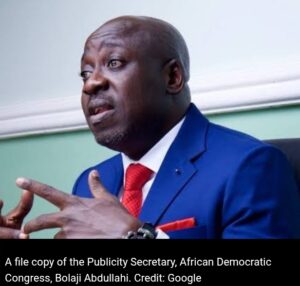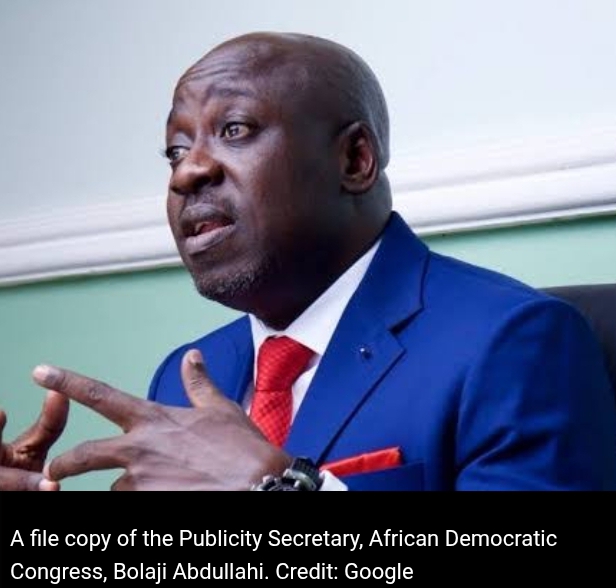

Wednesday July 23, 2025
By TheNewsDESK |
The African Democratic Congress, ADC, Spokesperson, Bolaji Abdullahi, said policies implemented by President Bola Tinubu’s administration have failed to alleviate the suffering of Nigerians.
He also said that the government officials seemingly oblivious to the hardships faced by the populace.

Speaking on Channels Television on Wednesday, July 23, Abdullahi launched a critique of the current economic direction, asserting that the intended benefits of the policies have yet to materialise for the average citizen.
Abdullahi articulated a disconnect between the government’s rhetoric and the lived experiences of ordinary Nigerians.

He said that while the administration touts its policies, the tangible rewards or benefits promised to the people remain elusive.
“The policies of this government have not worked,” Abdullahi declared, adding a pointed observation:
“The people are suffering, but government officials have convoys that are getting longer; they are living in opulence, while you say people should continue to suffer.”
The ADC spokesperson challenged the premise of the government’s approach, questioning the lack of a clear roadmap for the suffering endured by citizens.

He highlighted the absence of a defined period for hardship, coupled with a lack of concrete promises regarding future rewards.
“If you know that the people are going to suffer as a result of these policies that you have adopted and you are unable to mitigate it, you tell the people, If we do this, we will suffer for this period, then this is the reward we will get,’” Abdullahi stated.
The ADC spokesperson also pressed for accountability regarding the utilisation of funds purportedly saved from the removal of fuel subsidy.
While acknowledging that some of these funds have been disbursed to states for infrastructure development, he questioned the direct impact on the daily lives of citizens.
He specifically asked, “Where’s that money going? It’s already been given to states; they’ve been spending on infrastructure. Then the question is, how does this affect the life of an ordinary person who has to buy petrol for 1,000 naira?”
He further illustrated this point with an example, “Now, okay, if I buy petrol for 1,000 naira, I want to be able to walk into a hospital and get cheaper drugs or free drugs. And I say, ‘Oh, that is the, that’s why, that’s the saving, that’s why I’m paying for it.’ But you don’t see that.”

Related posts
Categories
- Advertisements (1)
- Agriculture (46)
- Breaking News (26)
- Business (599)
- Crime (994)
- Education (322)
- Entertainment (128)
- Features (13)
- For The Records (43)
- Foreign News (1,201)
- Health (220)
- Home News (332)
- Interview (9)
- Judiciary (354)
- Lifestyle (140)
- Local News (112)
- National News (1,449)
- Opinion (26)
- Politics (1,018)
- Religion (158)
- Science and Technology (125)
- Security (686)
- Sports (882)
- States' News (824)
- Transportation (331)
- Uncategorized (10)

